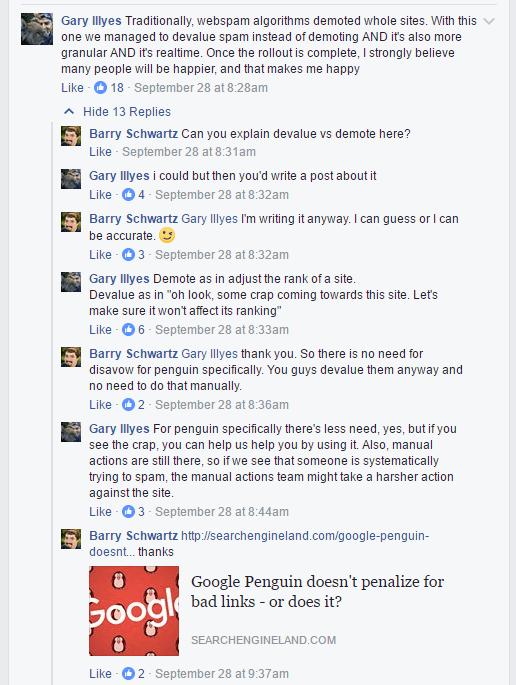1. Google, you read my mind!
So
first off, if I search for something like "best granola brands," what I
find is this page ranking first. It's from Eat This Supermarkets,
granted your mileage may vary. You might get a different search result
given your geo or that kind of thing. The page is called "The World's 10
Healthiest Granolas."

Now
Google is looking at a bunch of things here, but one of the things they
are obviously looking at and still looking at, very much so, is things
like keyword matches. And not just raw pure matches, although that's
important too, but synonyms, word uses, intent matching. Essentially
Google's trying to parse out, all right, when someone searches for
"best granola brands," they could mean the "best" meaning the most
flavorful, they might mean the ones that are most popular, they might
mean the ones that are healthiest, or maybe some combination of all
these qualities.
In
this case, they've taken "healthiest." "Healthiest" was, in fact, a
bunch of the top 10 results, so I think Google is actually saying, "Hey,
maybe in the world of granola, 'best' and 'healthiest' have some
synonymity, have some overlap, some confluence. Perhaps a lot of people
who are searching for best are searching for healthiest in the world of
granola that is." So they've put that there.
When
you're thinking about evaluating your content, we've done this for
years and years in the SEO world, but we should be thinking about how do
my keywords match up, particularly my title and my headline and the
first bits of my content.
2. Related topics
Number two, topic associations, related term and phrase matches, co-occurrence, keyword co-occurrence. It
is the case that if Google sees that a lot of the time, when words like
"best granola brands" or "granola brands" or "best granola" appear on
the Web, they also see words and phrases like "healthy." They also see
words like "nutritious." They see words like "fat and sugars." They see
"calories."
If
they're seeing these words frequently associated with this other topic,
they're going to essentially reward content that uses those terms and
phrases intelligently, and they might actually penalize pages that don't
have them. Google might for example say, "Gosh, it is very odd to have a
page about granola that nowhere on the page mentions nuts, because we
frequently see nuts and granolas mentioned together, and so that is a
peculiar one to us." Or it could be the case that when they see granola
brands, they almost always see a comparison of things like calories and
fat and sodium and sugar, and so when they see a page that doesn't have
those elements, that's also peculiar to them.





